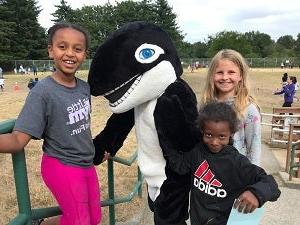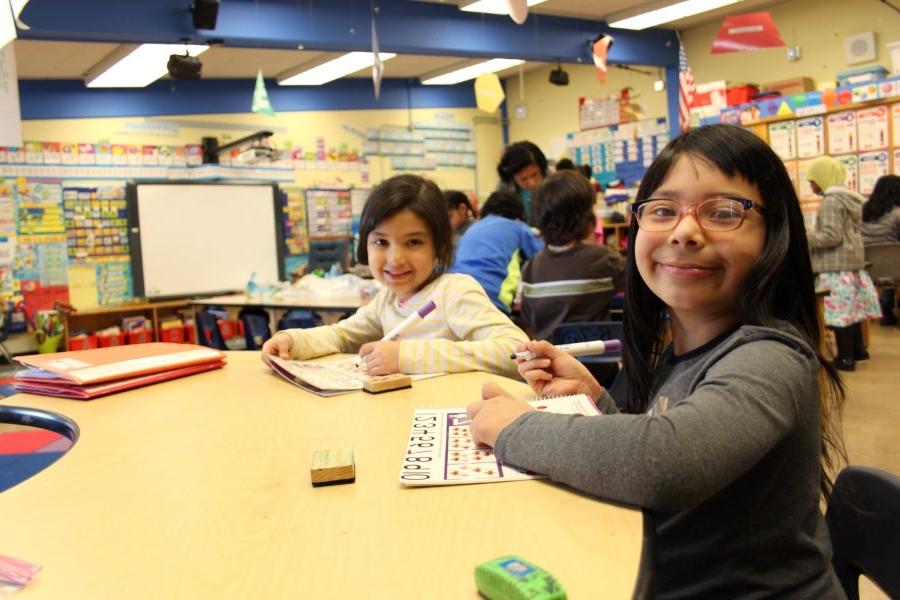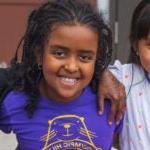3rd Grade
A Family Guide to 3rd Grade
In every grade, SPS’ core work is supporting student learning. We believe it is our responsibility to do whatever it takes to ensure that every child, regardless of race, gender, socioeconomic status, language proficiency, learning style or disability, achieves to their highest level.
Now that your child is in 3rd grade, they are more able to put ideas together and learn on their own.
While they are still building skills in reading and writing and the basics of math, third grade students are starting to dig deeper into topics, moving to more advanced problem solving and research activities. These require them to combine different abilities.
This is an important time in their learning! As they move from learning to read, to reading to learn, you can support their growing enthusiasm for learning and confidence by helping them to organize their ideas and showing them how to break projects into pieces they can manage.
Since 3rd graders are often eager participants in new activities, helping them find groups and places where they will feel comfortable to stretch their learning and build on interests is a good idea. They may enjoy tasks that they can start and complete on their own, as well as projects with multiple parts that they can work on with others. Make time for their questions and show them how you learn new things from what you see, hear, read, and do.
When you talk with your child’s teachers, you can describe the independent learning you see at home and ask how your child is developing at school.
Important Dates
September
- 1st day of school
November
- Parent-Teacher Conferences
December
- End of 1st Trimester; 1st Progress Report Available
March
- End of 2nd Trimester; 2nd Progress Report Available
June
- End of 3rd Trimester; 3rd Progress Report Available
Student Progress Reports
Make sure you understand the social-emotional and learning readiness skills on the report card. These prepare your children for language arts, math, science, social studies, physical education and arts standards and set them on their way!
How to Access Progress Reports
Families will use The Source to view Student Progress Reports.
Parent and guardians can create an account with the email on record at their student’s school.
Student Success by Subject
Social Emotional Learning
At Seattle Public Schools we believe that social emotional learning prepares students for learning and life.

Social emotional learning (SEL) helps children:
• Manage emotions, show empathy
• Develop a healthy identity
• Make responsible decisions
• Have positive relationships
• Contribute to their community
These skills are important for learning and life.
At school, students learn and practice SEL skills throughout the day.
Reading and Writing
In English language arts (ELA), 3rd grade students learn to:
- Independently read different types of writing or text, called genres
- Find the main idea and share key details from text to support thinking
- Read and comprehend grade-level texts accurately and fluently, figuring out the meaning of unknown words
- Write about their opinions or information with facts and details
- Work to plan, and edit writing to make it clearer and more organized
- Write for different purposes and audiences
- Take part in collaborative classroom conversations
Encourage your child to read 20 minutes or more every day.
Math
In 3rd grade math, students will build on their 2nd grade understanding of Base-10 number system and operations to:

- Use understanding of our number system to develop strategies for addition and subtraction strategies to solve within 1,000
- Represent and solve problems involving multiplication and division within 100
- Determine area of given shape and relate it to addition and multiplication
- Understand the relationship between multiplication and division
- Compare fractions and recognize equivalent fractions using models.
- Solve two-step word problems involving the four operations
- Draw a picture graph and bar graph to scale
- Represent a data set with several categories
We believe all students have mathematical brilliance. Your child’s teacher seeks to cultivate brilliance to develop your child into a mathematical thinker and problem solver. Your child will see who sees the value of math in their life.
Science
What are 3rd graders learning in science?
This is a time for transition in science education, with teaching and learning focused on three key areas in Washington state Science Learning Standards:
- Science/engineering practices used by professionals to explain the world or solve problems
- Core ideas that include fundamental scientific knowledge
- Crosscutting concepts frame scientific thinking across life, earth/space, physical sciences.
Your child’s report card shows performance expectations, for what students should be able to do by the end of a unit. The three dimensions are woven into each performance expectation.
Get outside together, taking time to notice, appreciate, and wonder about the natural world.
Social Studies
What’s important about 3rd grade social studies?
The report card shows five areas of social studies that you and your child can discuss.
- Civics – Understand that communities have people with different cultural perspectives
- Economics – Understand that laws, values and customs influence economic systems
- Geography – Understand elements that cultures share; Understand cultural characteristics of regions in North America
- History – Understand how various cultural groups have shaped history
- Social Studies Skills – Ask questions and use primary and secondary sources to find information and make conclusions
Physical Education
In physical education (PE), students build movement skills, knowledge, fitness, social well being, and confidence so they can enjoy a healthy, active lifestyle. Seattle Public Schools is committed to providing a quality physical education program to help students develop in these areas.
Our PE standards are based on motor and movement patterns and skills, as well as concepts like physical literacy, which is the ability, confidence, and desire to be physically active for life. PE is an instructional program, which makes it different from recess, free play, recreational sports, or athletics.
PE teachers work with general education teachers to provide high quality instruction for an average of 100 minutes per week, which is required by Washington state law. Schools organize PE times in different ways, but all students should be learning about their physical selves all year long!
Visual and Performing Arts
Research shows that students with an arts education are more engaged, do better in school, and are more likely to graduate and participate in community life. In Seattle Public Schools, we want every student to receive a comprehensive, predictable arts education during their K-12 years.
Each elementary school offers different arts programs, from possibilities including visual arts, general music, theatre, dance, or instrumental music.
Progress report standards come from the Washington state Arts Learning Standards, which focus on aspects of artistic process:
- Creating: developing new artistic ideas and work.
- Performing: interpreting and presenting artistic ideas / work
- Responding: understanding and evaluating meaning in the arts
- Connecting: Relating personally to artistic ideas and work
The arts are a core subject!
Make art together!

